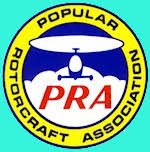BECOMING A SPORT PILOT GYROPLANE (Light Sport Aircraft)
In order to obtain an FAA Certificate as a Sport Pilot, an applicant must meet the following requirements:
Be at least 17 years of age (16 for free balloons and gliders)
Possess a currently valid Airman Medical Certificate or a state-issued driver’s license (except for free balloons and gliders, for which neither are required)
Be able to read, write, and speak the English language
Have completed the following flight training as a student pilot training under a Certified Flight Instructor (CFI):
A minimum of 20 hours flight time, including:
-
- Fifteen hours of dual flight instruction (time spent in flight training with an instructor in the aircraft with you)
- Five hours solo
- Two hours dual cross-country
- One solo cross-country flight
- Two hours of test prep instruction
Completion of the FAA Sport Pilot Knowledge Test (sometimes called the “written” test, although it’s generally taken at a computer testing center these days)
Completion of the FAA Sport Pilot Practical Test (oral and flight test, or “checkride”)
Minimum Ages for Flight Training
The FAA does not specify a minimum age to take “dual” flight training (that is, training with an instructor sitting with you in the aircraft). Flight schools and/or instructors may, at their discretion, decide whether a youngster is ready to start flight training. Generally, this decision will be based upon the youngster’s physical ability to manipulate an aircraft’s controls, and his or her mental and emotional maturity.
In order to obtain a Student Pilot Certificate and fly solo, however, a student pilot must be at least 16 years of age (or 14 for balloons and gliders), possess a valid Student Pilot Certificate, and be endorsed for solo flight by his or her instructor.
In addition, if a student does not possess a valid driver’s license (or if the student has a driver’s license with certain age-related restrictions, such as a requirement that an adult be in the vehicle while they are driving), then that student will need to obtain an Airman Medical Certificate before being allowed to solo.
Security Requirements
In addition to the above, candidates for Sport Pilot certification must satisfy the Transportation Security Administration requirements that apply to all individuals applying for pilot training in the United States. These requirements must be met before a candidate begins instruction.
U.S. Citizens
Applicants who are U.S. citizens must provide a current, valid, government-issued picture I.D. (such as a driver’s license) and one of the following proofs of citizenship before beginning pilot training:
-
- A valid, unexpired U.S. passport (may also be used to meet the photo I.D. requirement)
- An original, government-issued birth certificate of the United States, American Samoa, or Swains Island
- An original Certification of Birth of a U.S. Citizen Abroad, Certificate of U.S. Citizenship, or Certificate of Repatriation, with raised seal
- An original U.S. Naturalization Certificate with raised seal
Aliens
Candidates who are not U.S. citizens (including those who have permanent resident status) must comply with extensive requirements that include fingerprinting, photographs, background checks, and the payment of a processing fee ($130.00 as of this writing).
The time needed to complete the approval process varies according to many factors, including the type of training desired and whether the applicant already holds an aviation-related security clearance. In most cases, however, new applicants for Sport Pilot flight training will fall into TSA Category 3 and will receive an email authorization to begin initial training shortly after all of their paperwork (including fingerprints) and the required fee are received by TSA.
Medical Requirements
Sport Pilots who possess a current and valid U.S. driver’s license don’t have to have an Airman Medical Certificate, but some requirements and conditions do apply.
